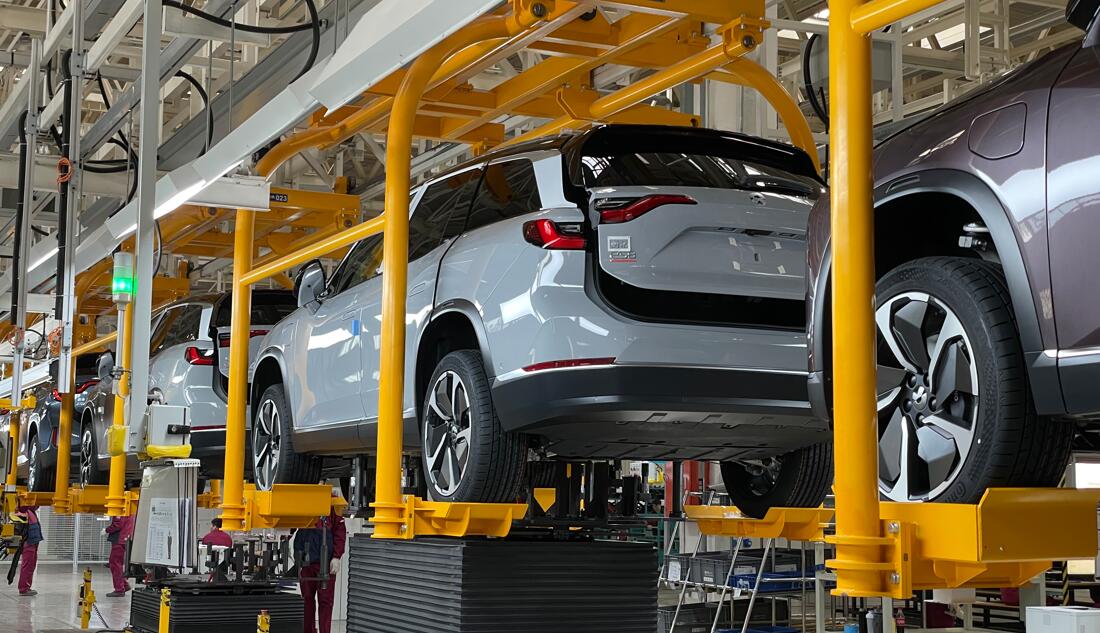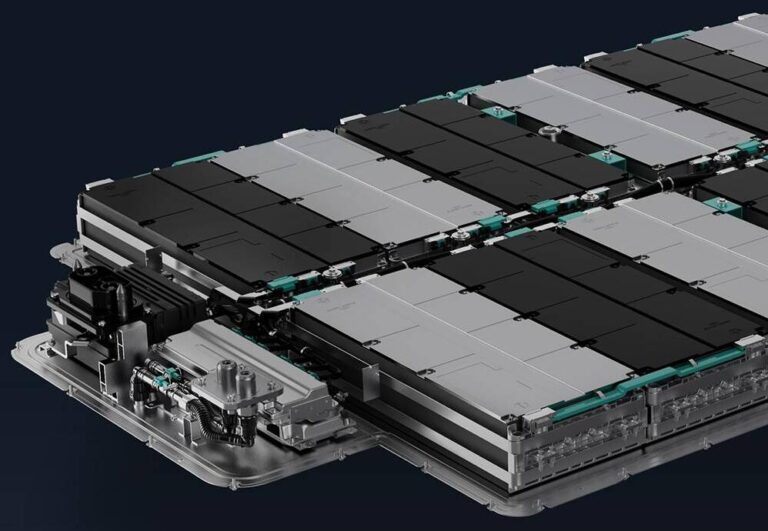Nio's battery plant will have an annual capacity of 40 GWh and could power about 400,000 long-range electric vehicles, Reuters reported.
(Image credit: CnEVPost)
Nio (NYSE: NIO) plans to build its first battery plant to produce large cylindrical batteries similar to those used by Tesla, Reuters said today, citing two people familiar with the matter.
The new plant would have an annual battery capacity of 40 GWh and could power about 400,000 long-range electric vehicles (EVs), the report said.
The plant will be located next to Nio's major manufacturing center in Hefei, in eastern China's Anhui province, the people said.
Nio's move is aimed at reducing its reliance on suppliers such as CATL, according to the report.
On June 9, 2022, William Li, founder, chairman and CEO of Nio, confirmed in an earnings call that the company would develop its own batteries.
Nio has a battery team of more than 400 people to research areas including battery materials, cells, and battery management systems to fully establish battery system development and industrialization capabilities, he said at the time.
The company's new battery pack will go into production in 2024 and will support 800V high-voltage fast charging, according to Li.
Before Li confirmed the plan, an environmental assessment report in late May last year showed that Nio planned to invest RMB 218.5 million in Shanghai, where its global headquarters are located, to build a lithium battery lab and cell trial line.
On August 24, local media LatePost reported that Nio was developing lithium manganese iron phosphate (LMFP) and 4680 cells in-house.
Nio will put LMFP batteries into small-scale production for the sub-brand codenamed ALPS, which is targeting the RMB 200,000-300,000 market and is expected to be available in 2024, the LatePost report said.
Nio vehicles are currently produced at two plants in Hefei -- the JAC Nio advanced manufacturing base, or the F1 plant, and the F2 plant in NeoPark.
Reuters' report today does not specify which vehicle assembly plant the battery plant will be located near, though previous information suggests it may be located in NeoPark.
On April 29, 2021, NeoPark, an electric vehicle industrial park jointly promoted by Nio and the Hefei municipal government, began construction with a planned annual capacity of 1 million vehicles and a planned annual battery capacity of up to 100 GWh.
On October 21 last year, a company called Nio Battery Technology (Anhui) Co Ltd (蔚来电池科技(安徽)有限公司) was registered in Hefei, probably to pave the way for its battery manufacturing efforts.
With a registered capital of RMB 2 billion ($275 million), the company's business scope includes battery manufacturing, battery sales, graphite and carbon products manufacturing, synthetic materials manufacturing, auto parts and accessories manufacturing, and resource recycling technology research and development.
Some skepticism emerged after Nio announced its plans to build batteries in-house.
In a report on October 26 last year, Yicai quoted Li as saying that it is a normal strategy for automakers to make batteries.
Li did not provide further comment, though Yicai's report quoted Zhang Xiang, an auto industry researcher, as saying that CATL's share of China's power battery market is more than 50 percent, and that such an excessive share of voice is not something car companies are happy to see.
CATL is under the pressure of losing customers and is starting to introduce measures to improve loyalty after months of falling lithium prices.
The power battery giant has recently been pushing a program to several strategic customers, including Nio, Li Auto, Huawei and Zeekr, to lower their battery purchasing costs, according to a 36kr report last week.
The core terms of the partnership include that CATL will settle a portion of the price of power battery supply with automakers at a price of RMB 200,000 per ton of lithium carbonate for the next three years.
At the same time, automakers that sign the partnership will need to commit about 80 percent of their battery purchases to CATL, according to the report.
Lithium carbonate prices in China have been falling for several months and are currently quoted at around RMB 400,000 per ton.

